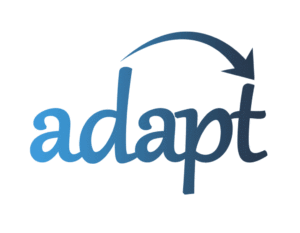ADAPT NEWS
ADAPT NEWS
Newsletter Q3 2024
From The Legal Team
To Amend or Amend and Restate?
That is the Question
That is the Question

Best Practices in Using Amendments and Restatements
-Mark Hevrdejs JD, LL.M and COO of ADA Platform Technology, LLC
There are no hard and fast rules as to when to amend a trust versus restating one completely. In my experience, clients who have already invested in setting up a trust often want to do the bare minimum in updating it. They seek you out thinking a simple amendment is all that is needed. However, there are a few practical considerations that may make you want to insist that the trust be restated. Here is a brief run-down of the things I consider when determining whether to amend or restate a trust:
Did someone else prepare the original document?
If neither you nor your firm prepared the original document, are you prepared to be on the hook for all the language contained in the entire legal document? Even the parts that you are not amending? Making a small change to the choice of trustee or adding a child may seem like a no brainer but if the underlying trust is not properly structured or omits key provisions, and you have not reviewed it in detail you may open yourself up to subsequent claims from the client or beneficiaries. Many times, it’s just easier to restate the trust then amend it – even for a minor change where the attorney performing the restatement did not create the original document and just wants the certainty of familiar language rather than how things may have been expressed by another drafter.
Are there potential privacy concerns?
The relationship between your clients and their beneficiaries may materially change over time. Someone who is disinherited today may be the primary residual beneficiary tomorrow or a special needs beneficiary may no longer need special treatment. Whatever the case, if there is any concern about what the amendments may reveal about the evolving attitude of the settlor(s) toward particular beneficiaries or about the beneficiaries themselves one should strongly consider restating the trust rather than simply amending the document.
This is because when you amend the trust beneficiaries are entitled to review all the amendments AND the initial document. They will be privy to all the changes and how the settlor(s) viewed a particular beneficiary and all the other beneficiaries over the various iterations. However, if one restates the trust, the beneficiaries will only see the current version of the document as the earlier versions of the trust become null and void and can be destroyed or kept confidentially from the beneficiaries by counsel.
Is the trust as amended more complex than it needs to be?
Whether its because there are multiple amendments or perhaps simply because of the passage of time and provisions that were put in to deal with minors or other dependents are no longer relevant, the trust document may be, or is becoming, more complex than needed. The opportunity to amend can also be a good time to clean things up with a restatement. After all, a simpler document is usually easier for all parties to understand and administer down the road.
Is it a material change?
Some changes are so material and/or affect multiple areas of the trust document that it’s just better to restate to avoid confusion. If for instance, your clients have come into an inheritance and have previously set up a basic probate avoidance trust but now are in a position where tax considerations are coming into play and they want to modify it into something that is a better fit with their financial situation such a disclaimer trust with the ability to make the disclaimed portion an exemption trust for maximum tax planning. This type of change would require amendment of provisions across multiple Articles of the Trust, making the interpretation of the intention more difficult at a minimum given the amount of cross-referencing between the documents. Big changes deserve the clarity that only a complete restatement can provide.

ADAPT Customer Service
The ADAPT support team is here to assist you with your questions and concerns Monday through Friday 8 am to 5 pm CST. When communicating a concern that you may have to our support team please be sure that you are letting the support team know all the details of the concern.
Here is a timeline of the ADAPT process of reviewing a concern
- Firm reports an issue.
- Support team works with the firm to gather all the information needed to review the issue.
- Support team validates the issue.
- Support team escalates to legal and/or development teams for review and correction.
- Support team validate the issue has been resolved and has not created other issues.
- All teams sign off on multiple issues/updates.
- An update is pushed to the live environment after/before business hours – to minimize the interruption to ADAPT clients.
- The support team communicates with ADAPT client that the issue has been resolved.
- An update is posted in the communications for all other firms to review.
Our support team can be reached via phone, email or chat.
(800) 212-2642
Live Chat @ adaptdocs.com
From The Developers
Best practice – working on an old client matter
When a client matter is created, an answer file and data are saved based on the current development release of our solution.
What does this mean?
The development release includes changes or additions to user input as they may be different or new to old client matter files.
So how does this affect my client’s old matters?
When trying to load a matter that has not been opened in quite some time, you could experience issues with unanswered questions, variables associated with the solution not preset to a default value causing saving issues with data, the answer file, or even the clients management area.
So, what do I do if this occurs?
The best practice for this situation:
Step 1: is to make sure you have the client’s data on paper, any documents completed prior to this issue, and any questionnaire reports saved to your computer or on paper.
Step 2: Delete the client’s matters.
Step 3: Start a new matter.
If the issue persists, delete the client completely and start by adding the client and then a matter.
So how is ADAPT going to handle this issue?
In the latest addition to the ADAPT platform, this issue will no longer exist as the way the new platform is being developed will ensure better data management and data integrity between old and new matters. This new platform is expected to be released between late 2025 and early 2026. A partial release of this new platform in the form of the Correspondence creator was completed earlier this year.
Please contact support for questions (support@adaptdocs.com). As always we welcome your comments on how we might improve the platform for your business needs.
